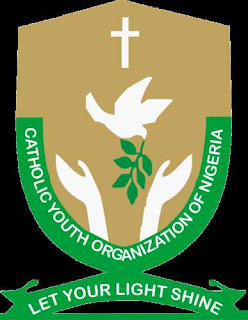The Beauty of the Catholic Faith
To enjoy the beauty of Catholicism, you need not abandon your true ideas about God. The Catholic faith, however, will enhance your knowledge and love of God.
The Catholic faith seeks the truth about all matters. It is open to ideas from every quarter that seeks the truth, including science, psychology, literature, sociology, theology and philosophy. This openness results in a view of mankind that has an unsurpassed intellectual depth, thoroughness, consistency, and integrity that appeals to all who are intellectually inclined toward truth. But enjoying the beauty of the faith is not limited to intellectuals.
Catholics worship God in Himself and in His creation. Intellectual acumen is not required to appreciate the wonder of the Holy Sacrifice of the Mass (Acts 2:42), the re-presentation of the great act of love performed by God’s own Son, the Second Person of the Divine Trinity, born of Mary, true God and true man (1 Cor 11:23-32). Even outstanding composers of classical music such as Bach, Brahms and Beethoven have been unable to capture the full splendor of the Mass. It is a daily, worldwide reminder of Jesus Christ’s loving willingness to suffer an agonizing death so that we might realize not only the horror of our sins but also the availability of God’s forgiveness and the possibility of eternal happiness (John 3:16). It is more than a reminder; it is a participation in Jesus’ act of love, as we share in His Body and Blood (John 6:54) through Holy Communion in accordance with His command (Luke 22:19-20). We can be no closer to God than to have Him physically inside us at Communion. The inner peace and happiness of both feeling and realizing His presence are indescribable. It is true joy. The Church is truly Christ-centered.
Although the Mass is the ultimate Catholic experience on earth, the union with Catholics past and present in the Mystical Body of Christ supports us throughout our day (Eph 3:6). Rich and poor, sinners and saints, all races and nationalities forgive each other, pray for each other, help each other, and worship together under one roof not an aloof person but three Persons so united in love as to be one God. We join our departed relatives, who remain part of the Mystical Body, the Communion of Saints (Rev 5:8). We join the same beliefs and practices of those who lived over the past thousands of years in worshipping God through our prayers to God and for each other. Beautiful, prayerful devotions abound, many in conjunction with miraculous apparitions that are the supernatural action of God in life on earth.
This same Communion of Saints answers the “problem” of suffering. Suffering is a grace from God, an offering from God to participate in His suffering for the atonement of sin (Gal 6:17; Col 1:24), to lead a life such as led by His beloved Son. Suffering is an opportunity for spiritual healing in the sufferer and in other members united to the sufferer through the Mystical Body. Incapacitating suffering provides time for prayer, prayer that supports individual members and all members of the Mystical Body and fights the evils of the world. Such prayer can do more than the actions of the healthy. Those who suffer get great consolation from knowing the importance of their prayers.
This same Communion of Saints includes men and women devoting their entire lives and their every possession to the care of the poor, the sick, and the elderly; working in hospices, hospitals, and nursing homes built by the Church. Others in the Mystical Body perform similar services as time permits them. Almost all perform these services vicariously with their financial contributions (James 2:26).
What some see as rules and regulations are rather calls to holiness (Luke 6:17-38). God’s moral laws guide us to earthly and eternal happiness. They are wiser than all human wisdom (Ps 19). God entrusted His guidance to His Church on earth, first visible through Peter and now visible through Peter’s successors (Matt 16:18-19). His Church compiled and maintains God’s inspired word, the Bible, for our daily guidance. His Church, teaching Christian Humanism based on God’s unique gift of human freedom and dignity (Gen 1:26), calls us to return to the goodness for which He created us (Gen 1:31). He ordained the leaders of His Church with the power not just to cover over but also to forgive sins (Matt 16:18-19), thereby assuring us that He knew we would fail but providing the repentant with a physical confirmation of His forgiveness. The Saints, whom the Church certifies as holy, serve as spiritually strong and beautiful role models for repentant and holy lives. The Seven Sacraments sanctify every key step in our lives, helping individuals, marriages and families.
The Catholic faith provides a sound basis for the virtue of hope, hope that is based on God’s love for us and His eagerness to forgive us our sins, hope for us especially at the end of our lives. At the end of time, those who do the will of God will rise with their bodies to live in paradise (John 6:40), created as humans with body and soul to remain as humans with body and soul, living eternally happy. Our bodies will be glorified, able to move with the speed of thought, penetrating walls as Jesus did after His Resurrection. The suffering we might have experienced on earth will be nothing compared to the happiness of heaven.
You, dear reader, are invited to join the Catholic faith, to participate in its intellectual and aesthetic beauty, and to experience the love of God, the union with Him, and the hope for the eternal future.


Comments
Post a Comment